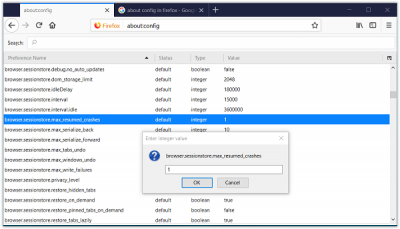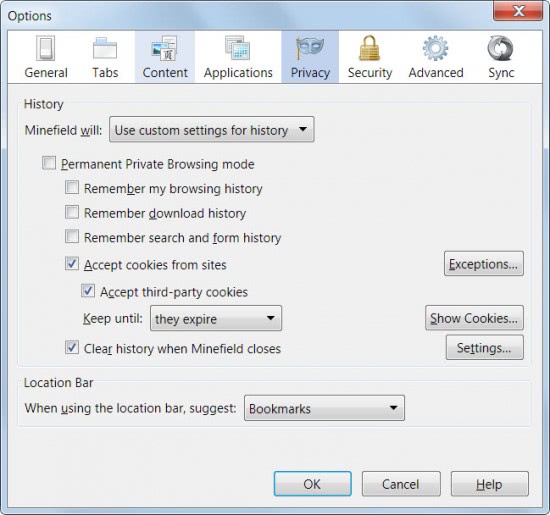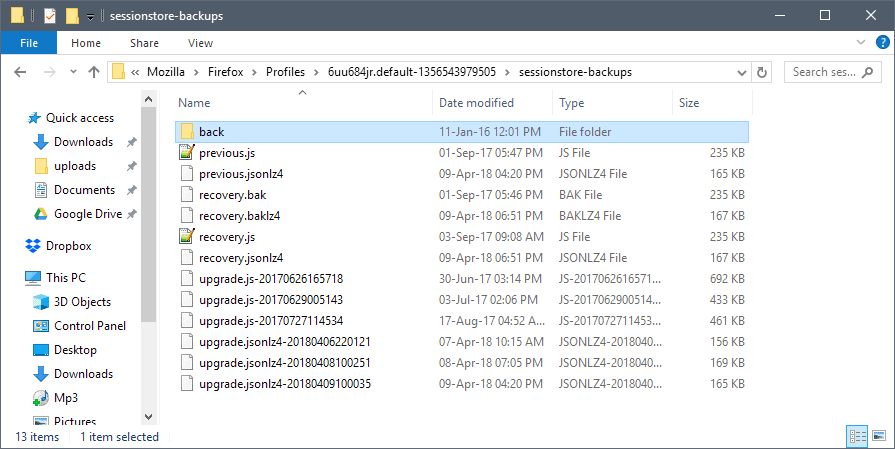

If Firefox keeps crashing after choosing "Restore Session," choose "Start New Session." If a site's content caused your crash (e.g., a plugin is crashing) restoring your session may restore that page and cause Firefox to crash again. Set _session_once to "true" in about:config and it will restore your session the next time you start Firefox, but not again.
#Firefox sessionrestore windows#
Closing the windows one at a time will cause Firefox to only restore the last window that was closed.

#Firefox sessionrestore mac#
If you want Firefox to restore multiple windows you need to close Firefox via "File -> Exit" ("File -> Quit" on Linux, "Firefox -> Quit Firefox" on Mac OS). This will have Firefox restore your tabs and form data to their state when Firefox closed (the related preference is ). In the Main panel, under Startup, set "When Firefox starts" to "Show my windows and tabs from last time". Always restore sessions on startīy default this feature is off, but can be turned on from the Options/Preferences menu. If it crashes again, Firefox displays an error page offering to restore the previous session or start a new session. Starting in Firefox 3.5, Firefox automatically restores your session after one crash. Firefox will offer to restore your session after a crash or other unexpected close.

into_iter ().Firefox will automatically restore your session after an automatic update, or when using the restart button from the Add-ons Manager.

Under ~/.mozilla/firefox on Linux, or %APPDATA%\Mozilla\Firefox on Windows, you should have a profiles.ini, an installs.ini and one or more randomly-named subdirectories. I've previously used lz4json to decode them, but it's a good prompt for a post, and I'd rather not keep an extra AUR package anyway. Unfortunately, last time I checked, there wasn't much information available about the session restore format. If you're using Firefox (and you should), you might have wanted to read its session restore files, perhaps to recover some lost tabs, re-import an old session after a refresh, or even track your tab hoarding habit.


 0 kommentar(er)
0 kommentar(er)
